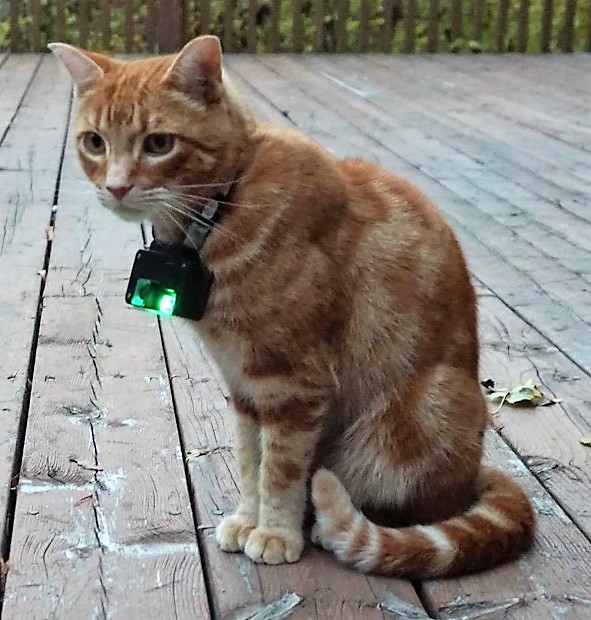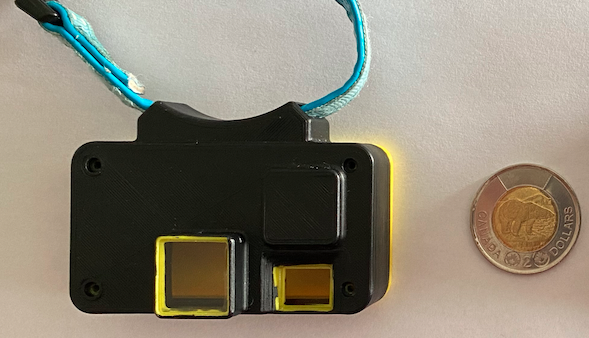
What exactly do cats get up to when they are sent outside?
That’s what a team of University of Guelph researchers is hoping to find out in a study that will see cats outfitted with “catcams,” or cameras that offer a true cat’s eye-view of the world.
Drs. Elizabeth Gow and Ryan Norris of the Department of Integrative Biology, along with graduate student Marlee Pyott, hope to enlist cat owner volunteers who want to contribute to science as well as learn a little more about their cats’ lives outside the home.
The researchers want to better understand how far cats travel, what dangers they face, what other animals they encounter, how they interact with other cats and what sort of prey they kill.
“This is a great way for owners to learn just how their cats fare in the outdoors,” said Gow. “We think some might be surprised to find what their cats really get up to.”
Volunteer owners who take part in the research will be asked to attach a collar supplied by the research team fitted with a lightweight, specially designed camera each time their cat is sent outdoors.

Norris, an ecologist who studies migratory birds and pollinators, said he and Gow, an animal behaviourist and ornithologist, are particularly interested in learning about what birds, mammals and other creatures cats hunt.
“We really want better estimates of how much wildlife cats take – and what kind of wildlife. We know it’s a lot and we tend to assume it’s just mice and birds, but perhaps it’s also butterflies, moths, amphibians – we’d like a better estimate of those,” he said.
Previous studies that have examined cats’ outdoor behaviour have relied either on owners’ reports of what their cats bring home or on fecal samples. But neither offers a full picture of what felines hunt, Norris said, since cats don’t always consume what they kill nor always carry it home.
Because some cats will be more active than others, the team aims to recruit as many cats as possible around Guelph, Kitchener-Waterloo and Cambridge to participate for five weeks at a time throughout different seasons of the year.
“The volunteer pet owners will be given a highlight reel of their cat’s behaviour at the end of the study. They will also be given the results from their cat’s personality test and entered into a draw for one of three $50 gift cards from Ren’s Pets,” said Gow.
The research is funded in part from a grant from the Guelph Institute for Environmental Research.
Cats need to be older than 12 months and comfortable wearing a collar. Owners will be trained virtually on how to use the custom-built catcams.
Interested cat owners in the study area can learn more at TheCatCamera website, or email Marlee Pyott at mpyott@uoguelph.ca.
Contact:
Dr. Ryan Norris
rnorris@uoguelph.ca
Dr. Elizabeth Gow
egow@uoguelph.ca